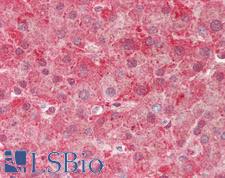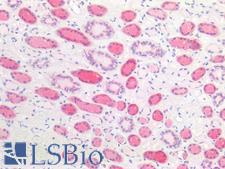Login
Registration enables users to use special features of this website, such as past
order histories, retained contact details for faster checkout, review submissions, and special promotions.
order histories, retained contact details for faster checkout, review submissions, and special promotions.
Forgot password?
Registration enables users to use special features of this website, such as past
order histories, retained contact details for faster checkout, review submissions, and special promotions.
order histories, retained contact details for faster checkout, review submissions, and special promotions.
Quick Order
Products
Antibodies
ELISA and Assay Kits
Research Areas
Infectious Disease
Resources
Purchasing
Reference Material
Contact Us
Location
Corporate Headquarters
Vector Laboratories, Inc.
6737 Mowry Ave
Newark, CA 94560
United States
Telephone Numbers
Customer Service: (800) 227-6666 / (650) 697-3600
Contact Us
Additional Contact Details
Login
Registration enables users to use special features of this website, such as past
order histories, retained contact details for faster checkout, review submissions, and special promotions.
order histories, retained contact details for faster checkout, review submissions, and special promotions.
Forgot password?
Registration enables users to use special features of this website, such as past
order histories, retained contact details for faster checkout, review submissions, and special promotions.
order histories, retained contact details for faster checkout, review submissions, and special promotions.
Quick Order
PathPlusTM APCS / Serum Amyloid P / SAP Antibodies
APCS (Serum Amyloid P Component / SAP) is a glycoprotein belonging to the pentraxin family of proteins. In the brain of patients with Alzheimer’s disease, APCS binds to amyloid fibrils and paired helical filaments and is present in cerebrospinal fluid, neurofibrillary tangles and amyloid plaques. It is used as a marker for amyloid deposits in immunohistochemistry. Roughly 14% of the dry mass of amyloid deposits is composed of APCS, and it is a likely contributor to the pathogenesis of amyloidosis. The binding of the encoded protein to proteins in the pathological amyloid cross-beta fold suggests its possible role as a chaperone. This protein is also thought to control the degradation of chromatin, and it has been demonstrated that APCS binds to apoptotic cells at an early stage. In immunohistochemistry of normal tissue, APCS is positive in plasma and in hepatocytes in the liver.
References: Nature Medicine. 1997. 3 (8): 855–9, PMID: 9256275; PLoS One. 2016 Jul 18;11(7):e0159294, PMID: 27428539; Dementia. 1996 Sep-Oct;7(5):256-9, PMID: 8872416; PNAS May 5, 2009 106 (18) 7619-7623; PMID: 10.1073/pnas.0902640106; Cellular and Molecular Pathobiology of Cardiovascular Disease. Academic Press. 2014 Jan. 32. ISBN: 9780124052062;
2 PathPlusTM Antibodies


☰ Filters
Products
Antibodies
(2)
Type
Primary
(2)
Target
APCS / Serum Amyloid P / SAP
(2)
Reactivity
Human
(2)
Mouse
(1)
Rat
(1)
Application
IHC
(1)
IHC-P
(2)
WB
(2)
ELISA
(1)
Host
rabbit
(1)
mouse
(1)
Product Group
PathPlus Neuro
(2)
Isotype
IgG
(1)
IgG1
(1)
Clonality
monoclonal mc
(1)
polyclonal pc
(1)
Clone
7F3
(1)
Format
Unconjugated
(2)
Publications
No
(1)
Yes
(1)

Neuroscience
APCS / Serum Amyloid P / SAP Rabbit anti-Human Polyclonal Antibody
Mouse, Rat, Human
IHC, IHC-P, WB
Unconjugated
50 µl/$460

Neuroscience
APCS / Serum Amyloid P / SAP Mouse anti-Human Monoclonal (7F3) Antibody
Human
ELISA, IHC-P, WB
Unconjugated
50 µg/$460
Viewing 1-2
of 2
product results











